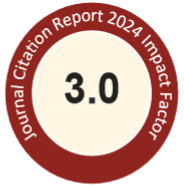Abstract
In recent decades, urine drug testing in the workplace has become common in many countries in the world. There have been several studies concerning the use of the urine specimen validity test (SVT) for drug abuse testing administered in the workplace. However, very little data exists concerning the urine SVT on drug abuse tests from court specimens, including dilute, substituted, adulterated, and invalid tests. We investigated 21,696 submitted urine drug test samples for SVT from workplace and court settings in southern Taiwan over 5 years. All immunoassay screen-positive urine specimen drug tests were confirmed by gas chromatography/mass spectrometry. We found that the mean 5-year prevalence of tampering (dilute, substituted, or invalid tests) in urine specimens from the workplace and court settings were 1.09% and 3.81%, respectively. The mean 5-year percentage of dilute, substituted, and invalid urine specimens from the workplace were 89.2%, 6.8%, and 4.1%, respectively. The mean 5-year percentage of dilute, substituted, and invalid urine specimens from the court were 94.8%, 1.4%, and 3.8%, respectively. No adulterated cases were found among the workplace or court samples. The most common drug identified from the workplace specimens was amphetamine, followed by opiates. The most common drug identified from the court specimens was ketamine, followed by amphetamine. We suggest that all urine specimens taken for drug testing from both the workplace and court settings need to be tested for validity. © 2017
ScienceDirect Link
Recommended Citation
Lin, S.-Y.; Lee, H.-H.; Lee, J.-F.; and Chen, B.-H.
(2018)
"Urine specimen validity test for drug abuse testing in workplace and court settings,"
Journal of Food and Drug Analysis: Vol. 26
:
Iss.
1
, Article 36.
Available at: https://doi.org/10.1016/j.jfda.2017.01.001
Creative Commons License

This work is licensed under a Creative Commons Attribution-Noncommercial-No Derivative Works 4.0 License.
Fulltext URL
https://www.sciencedirect.com/science/article/pii/S1021949817300194/pdfft?md5=1120bca0fde91663feea39cd4b10de6e&pid=1-s2.0-S1021949817300194-main.pdf
Included in
Food Science Commons, Medicinal Chemistry and Pharmaceutics Commons, Pharmacology Commons, Toxicology Commons


Abstract Image